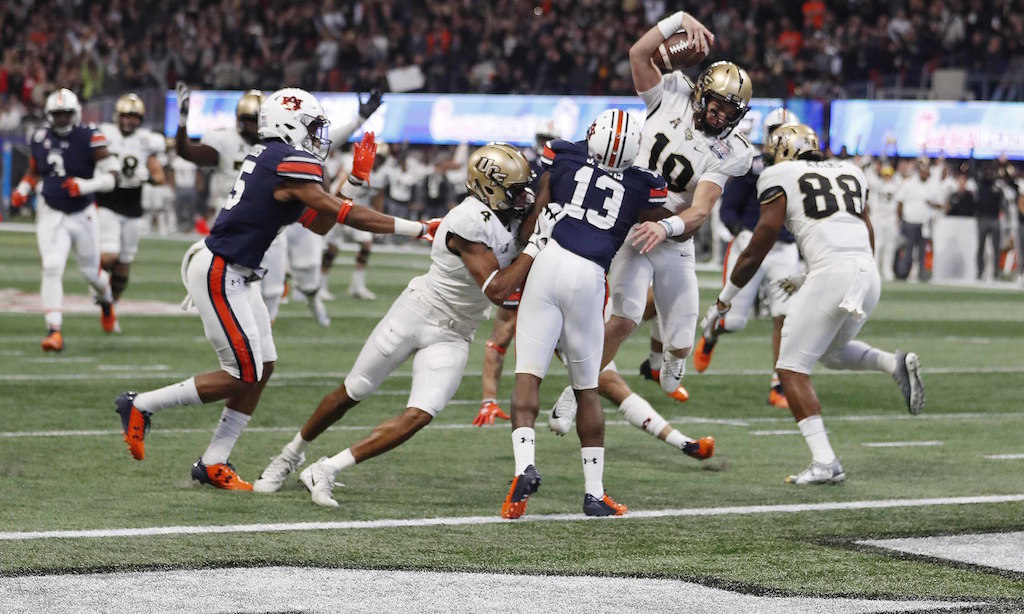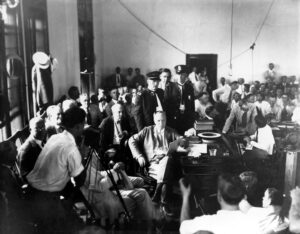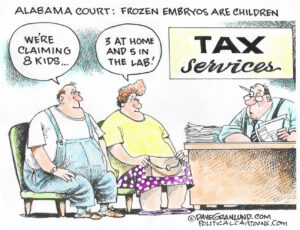America’s Class War Hits College Football Playoffs
Non-football fans might be tempted to say, "Who cares?" But anyone interested in fairness should care. Central Florida quarterback McKenzie Milton (10) runs for a touchdown against Auburn in the Peach Bowl on New Year's Day. (John Bazemore / AP)
Central Florida quarterback McKenzie Milton (10) runs for a touchdown against Auburn in the Peach Bowl on New Year's Day. (John Bazemore / AP)
The University of Alabama is playing the University of Georgia in the national championship game on Jan. 8. Whoever wins the game at Mercedes-Benz Stadium in Atlanta will be crowned the top college football team in the country.
Non-football fans might be tempted to say, “Who cares?” But anyone interested in fairness in America should care.
Both Alabama (12-1) and Georgia (13-1) are strong teams from the Southeastern Conference (SEC), and each team lost only one game this season to the same SEC opponent, Auburn. On Nov. 11, Auburn beat Georgia 40-17. On Nov. 25, Auburn beat Alabama 26-14, when Alabama was ranked No. 1. On Dec. 2, Georgia avenged its loss to Auburn with a 28-7 win in the SEC Championship Game. On Jan. 1, Auburn lost to the University of Central Florida 34-27 in the Peach Bowl. Later in the day, in the College Football Playoff semifinal games, Georgia outlasted Oklahoma 54-48 in double overtime at the Rose Bowl, and Alabama beat Clemson 24-6 at the Sugar Bowl to reach the title game. Oklahoma and Clemson finished their seasons at 12-2. Auburn finished at 10-4.
Now here’s where college football has a problem.
The University of Central Florida (UCF) finished its season with a 13-0 record, the only undefeated team in the Football Bowl Subdivision (FBS), the highest division in college football. But the Knights have no chance of being recognized as the best team in the country. That’s because UCF was not invited to the four-team College Football Playoff by the selection committee, comprised of current and former college coaches and administrators. The Knights play in the American Athletic Conference, not one of the Power 5 leagues (the Atlantic Coast, Big Ten, Big 12, Pac-12 and SEC), so UCF was not considered an elite team and was ranked 12th entering Monday, behind some two- and three-loss teams. To put UCF’s undefeated achievement in perspective, in 2015 its football team did not win a game, going 0-12 with 10 double-digit losses.
UCF head coach Scott Frost stayed silent about the CFP’s lack of respect toward his team throughout most of the season, but he thinks UCF’s exclusion from the playoff discussion was deliberate and called out the NCAA after his team’s final win.
It wasn’t right. I was watching [the CFP selection show] every week, the committee sitting in a room and deciding that this two-loss team must be better than UCF because UCF is in the American, or this three-loss team must be better than UCF.
It looked like a conscious effort to me to make sure that they didn’t have a problem if they put us too high and a couple teams ahead of us lost. And oh, no, now we have to put them in a playoff? But we just beat [Auburn] that beat two playoff teams and lost to another one by six points, and we beat them by seven.
Auburn is a great team. I’m not taking anything away from them. I give them a ton of credit. But these guys deserve everything they get, and they deserve more credit from the committee than what they got.”
Other people went even further than Frost (who is leaving UCF to become the head coach at the University of Nebraska, his alma mater).
“National champs,” UCF athletic director Danny White said. “Undefeated.”
.@UCFDannyWhite didn’t stutter…#ChargeOn pic.twitter.com/ozdNaz4MCW
— Orlando’s Hometown Team (@UCFKnights) January 1, 2018
“You can go ahead and cancel the playoffs,” UCF quarterback McKenzie Milton added. “I’m not changing my mind.”
The UCF football program changed its Twitter handle to read “2017 National Champions.”
Perfection achieved. ?#ChargeOn pic.twitter.com/cLJb8MrJLw
— 2017 National Champions (@UCF_Football) January 3, 2018
Former college football player and current analyst Danny Kannell may have summed it up best. “This is so bad for college football,” Kannell said on Twitter. “Fans are really gonna see thru the farce we call ‘playoffs’ and realize it’s a rigged system designed to benefit the elites.”
Inequality in college football is not a new problem. The haves always have an advantage over the have-nots. But the gap has never been as evident as it is today because the only undefeated team in the country finished its season by beating an all-powerful SEC team that beat the two all-powerful SEC teams playing for the national championship.
Of course, the NCAA and SEC fans (the 1 percenters) defend the current system. “The selection committee respected UCF,” College Football Playoff executive committee director Bill Hancock told ESPN. “After all, they’re the group that put the Knights in the Peach Bowl. To qualify for the playoff, teams need to play tough schedules against good teams—that is the way for all teams to stand out and be ranked high by the committee. UCF is an excellent team, but you still have to take into account who each team played and defeated during the regular season.”
This season, UCF played one opponent ranked by the committee, No. 20 Memphis, which the Knights beat 62-55 in double overtime in the AAC title game and 40-13 earlier in the season. UCF played one Power 5 opponent, Maryland (4-8), and won 38-10 on the road. The Knights also had quality wins over three other winning teams: South Florida (10-2), SMU (7-6) and Navy (7-6). UCF beat everyone it played.
That was not enough.
Still, Hancock believes the system is fair and does not think UCF’s success this year will help Group of 5 teams (non-Power 5 teams) in the future.
The CFP is all about teams, not conferences. … The committee starts all over every year and takes a fresh approach every season. It wouldn’t be right for what’s happened in the past to affect what happens this year. The committee respected UCF. … They had a great season.
Translation: The CFP is all about teams with money. And the biggest big-time teams make the most money. Comparing the football revenues for Alabama, Georgia and Central Florida, we’re talking about different stratospheres. According to the Department of Education, in 2015, Alabama made $104 million in football revenues (compared to $56 million in expenses), Georgia earned $88 million ($39 million in expenses) and Central Florida generated $22 million ($19 million in expenses). When big-time football schools win, the NCAA, media and corporate America win. The irony is that college football players—the people who do the most work to make all that football revenue possible—profit the least.
So the CFP should stop claiming that “every FBS team has equal access to the College Football Playoff based on its performance,” as it does on its website. The reality is that all 130 teams do not have a shot to be champs each year. Only a handful of teams do.
Until an egalitarian playoff system is implemented, the proletariat (the 99 percenters) will continue to be unsatisfied with an unjust system, whether it’s to determine the best college football team in the country or provide food, clothing and shelter for a family of four.
CFB fans if Alabama wins and we get an all-SEC national title game… #CFBPlayoff pic.twitter.com/RSHndBJ6Pf
— RedditCFB (@RedditCFB) January 2, 2018
Is Central Florida the best team in the country? Could UCF have beaten Alabama or Georgia in January this year? We’ll never know.
But it would be nice if the national champion in college football could be decided on the field instead of a boardroom.
Your thoughts? ? pic.twitter.com/r8iNRAi7da
— Sports Illustrated (@SInow) January 2, 2018
Just as it would be nice if an Independent or Green Party or Libertarian candidate—someone other than only a Republican or a Democrat—could win a congressional seat or become a senator or even president of the United States.
Could we have a system that puts people over profits and favors justice above all else?
We’ll never know until the playing field is level for everyone.
Your support matters…Independent journalism is under threat and overshadowed by heavily funded mainstream media.
You can help level the playing field. Become a member.
Your tax-deductible contribution keeps us digging beneath the headlines to give you thought-provoking, investigative reporting and analysis that unearths what's really happening- without compromise.
Give today to support our courageous, independent journalists.






You need to be a supporter to comment.
There are currently no responses to this article.
Be the first to respond.